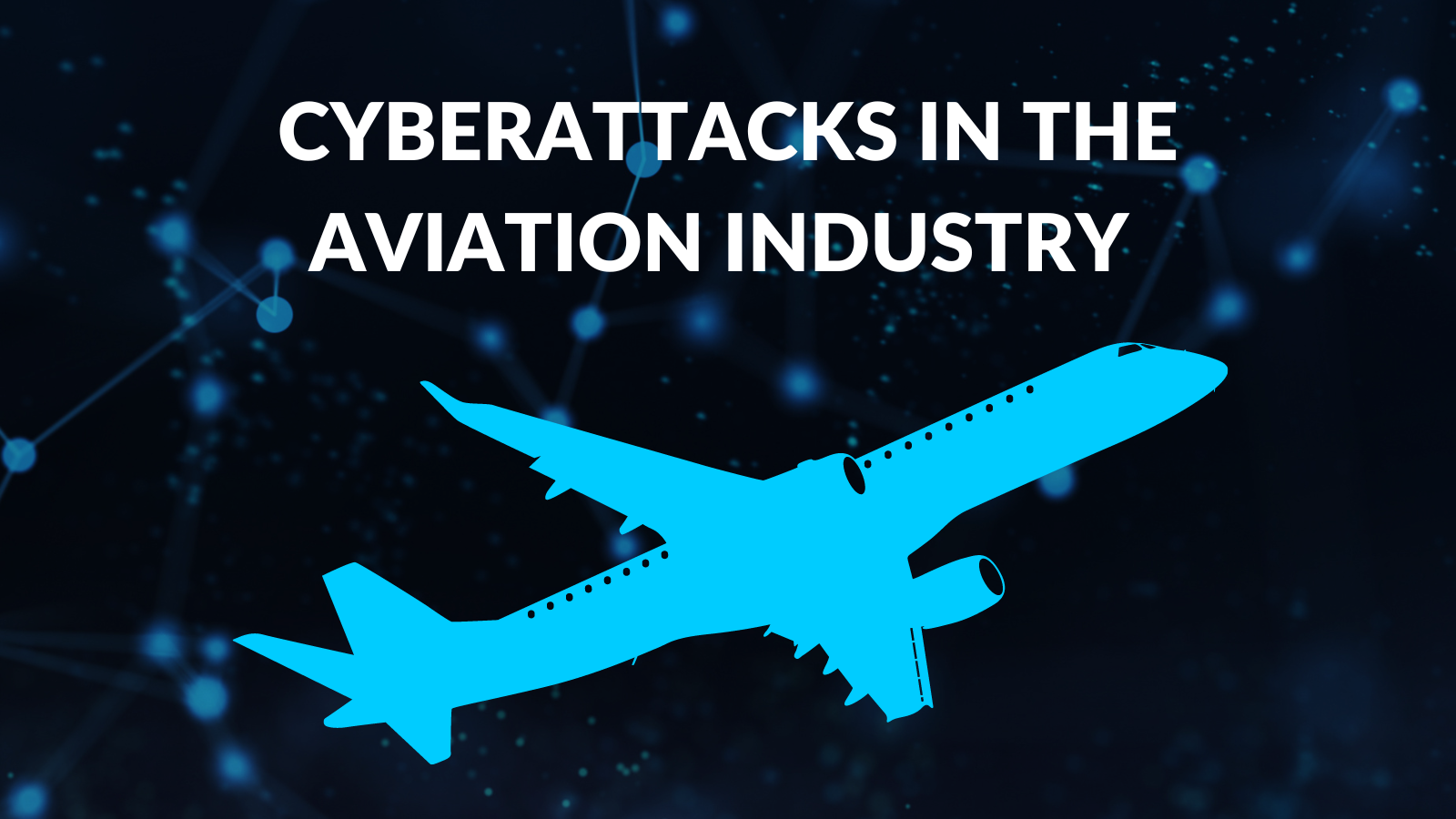Case Study: Cyberattacks in the Aviation Industry

Cyberattacks in the Aviation Industry - Risks and Remedies
Introduction
In recent years, the aviation industry has witnessed a rapid integration of technology to enhance operational efficiency and passenger experience. However, this advancement has brought with it an alarming increase in cyberattacks. This case study explores the rising threat of cyberattacks within the aviation sector, examines the risks involved, and suggests potential remedies to mitigate these challenges.
Background
Technological progress has revolutionised the aviation industry, leading to safer and more efficient operations. Nevertheless, this advancement has also made the industry vulnerable to cyberattacks. According to Resilinc, a global supply chain mapping and monitoring leader, cyberattacks in the aviation sector surged by 24% worldwide in the first half of 2023. These attacks have taken various forms, including ransomware attacks targeting supply chain players.
DOWNLOAD THE CYBER ESSENTIALS MONTPELLIER CHECKLIST HERE
Cyberattacks on the Rise
The case study highlights the significant increase in cyberattacks targeting aviation organisations. Notable incidents include attacks on London City Airport and Birmingham Airport, both of which experienced disruptions due to cyber intrusions. Moreover, ransomware attacks on supply chain players have seen an alarming rise, increasing by as much as 600% since the previous year. These attacks not only compromise sensitive data but also disrupt critical operations, leading to potential financial losses and damage to reputation.
Multifaceted Industry Risk
The aviation industry's complex ecosystem consists of numerous service providers, each contributing to its seamless functioning. Consequently, cyberattacks on any part of the supply chain can trigger a cascading effect, impacting various aspects of aviation operations. For instance, major carriers like British Airways, American Airlines, and Southwest Airlines have fallen victim to cyber breaches, resulting in the theft of sensitive information, including payroll and applicant data.
Challenges and Vulnerabilities
While technological advancements have bolstered aviation safety, certain operational technology systems remain outdated and susceptible to cyberattacks. For instance, the case study cites the use of outdated systems by the FAA in the United States, potentially exposing the industry to cyber threats. The vulnerability of these systems, coupled with the evolving tactics of cybercriminals, poses a significant challenge to the aviation sector's cybersecurity.
DOWNLOAD THE CYBER ESSENTIALS MONTPELLIER QUESTIONNAIRE HERE
Remedies and Recommendations
The case study proposes several strategies to counter the growing threat of cyberattacks in the aviation industry:
- Cyber Audits: Conducting comprehensive cyber audits for information and operational technology systems can help identify vulnerabilities and establish a foundation for enhanced cybersecurity.
- AI Monitoring: Implementing Artificial Intelligence (AI) systems for 24/7 monitoring of potential supply chain disruptions can enable swift detection and response to cyber threats.
- Supply Chain Mapping: Conducting supply chain mapping exercises allows aviation companies to gain insight into their direct and indirect supply chain partners. This knowledge enhances their ability to address vulnerabilities and strengthen their overall cybersecurity posture.
- Impact and Future Outlook: The case study underscores the potential consequences of neglecting cybersecurity in the aviation industry. For airlines, cyberattacks can lead to revenue loss, passenger attrition, and damage to brand reputation. Similarly, suppliers and third-party vendors could lose business to competitors with more robust security measures. As the aviation sector continues to integrate technology, safeguarding systems and supply chains becomes paramount to ensure the industry's resilience and continued growth.
Conclusion
The aviation industry's increasing reliance on technology has opened the door to a surge in cyberattacks, posing significant risks to operations and data security. This case study emphasises the urgent need for aviation organisations to prioritise cybersecurity measures. By conducting cyber audits, implementing AI monitoring systems, and performing supply chain mapping exercises, the industry can proactively mitigate cyber risks and ensure a safer and more secure aviation ecosystem.
If you are concerned about your current cyber security defences then talk to us at TechForce Cyber we can take you through an initial consultation and ensure you are fully protected for the worst happening.
Based around the latest article - https://simpleflying.com/cyber...;
Do check out our other cybersecurity case studies:
- Maersk Ransomware Attack
- British Airways Data Breach Fine by ICO of £183.4million
- Colleges and Universities in the UK targeted by cyber-attacks during the pandemic
- Microsoft Servers Hit by Cyberattack 2021
- Peterson Control Union Email Phishing & Security Awareness training
Also check out our blogs on Cyber Essentials & Cyber Essentials Plus certification:
Step 1: Organisation Size
Step 2: Pick Cyber Essentials Package
Cyber Essentials Basic - CEB001
£800 + VAT
*Insurance details are on IASME website
Guided Cyber Essentials - CEB002
£950 + VAT
Everything in CEB001 plus
Pre-assessment
Online/Phone Support
*Insurance details are on IASME website
Cyber Essentials Plus - CEP001
£2,900 + VAT
Everything in CEB002 Plus
30 Day Remediation
Systems Audit (remote)
*Insurance details are on IASME website
Guided CE Plus - CEP002
£3250 + VAT
Everything in CEP001 plus
Pre- systems Audit
Gap Analysis report
-
MOST POPULAR
*Insurance details are on IASME website
Related Articles
CONTACT US TODAY: